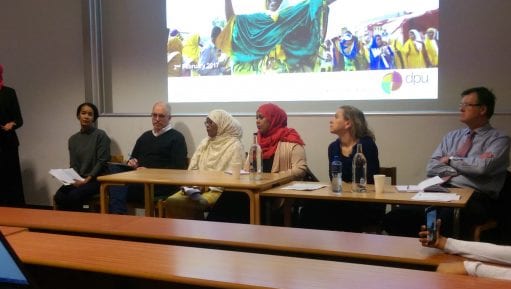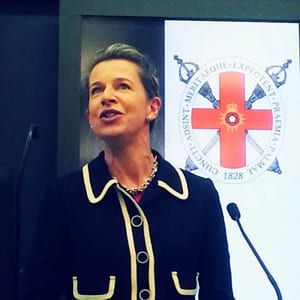Women’s political participation in Somaliland
By ucyow3c, on 1 March 2017
By Lilian Schofield, UCL Bartlett Development Planning Unit
Reflections from the ‘Women’s Political Participation in Somaliland’ event that took place on the 2nd of February 2017 and was presented by the UCL Development Planning Unit DPU, Somaliland Mission to the UK and Somaliland Focus (UK).

Picture: from left Amina-Bahja Ekman, Michael Walls, Nafisat Yusuf Mohammed, Hodan Hassan Elmi, Malou Schueller and James Firebrace
The concept of women’s exclusion from political participation is commonplace throughout the world. The principles of inclusion and equality occupies a central place in the discourse of political participation. According to the 2011 UN General Assembly resolution on women’s political participation, women all over the world continue to be largely marginalised from participating in politics and face a myriad of challenges and barriers in doing so. For women in many African countries, these challenges are made up of a complex set of factors and often embedded in local tradition, culture and religion. Women in Somaliland are not excluded from some of these challenges and barriers.
Read more at the UCL Bartlett Development Planning Unit blog.
 Close
Close


 From previous experience, the mention of the word ‘gender’ quickly equates to just ‘women’ and more often than not it is predominantly women who take an interest in the subject – an issue that was subsequently tackled in the lecture. I was pleasantly surprised, therefore, to see a large number of men in the audience.
From previous experience, the mention of the word ‘gender’ quickly equates to just ‘women’ and more often than not it is predominantly women who take an interest in the subject – an issue that was subsequently tackled in the lecture. I was pleasantly surprised, therefore, to see a large number of men in the audience.
